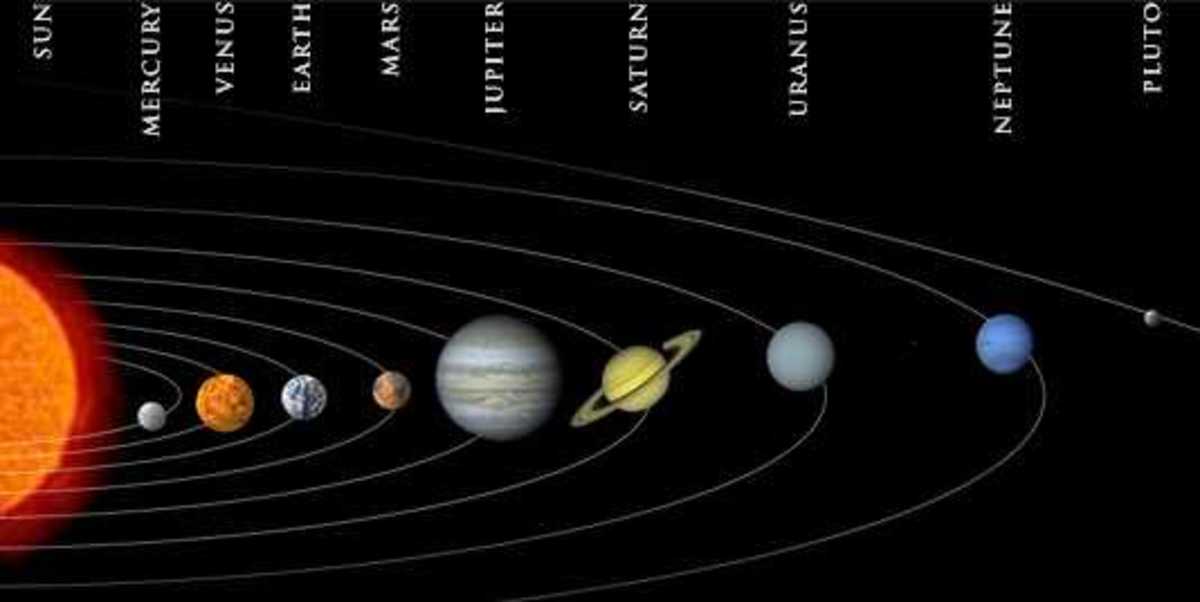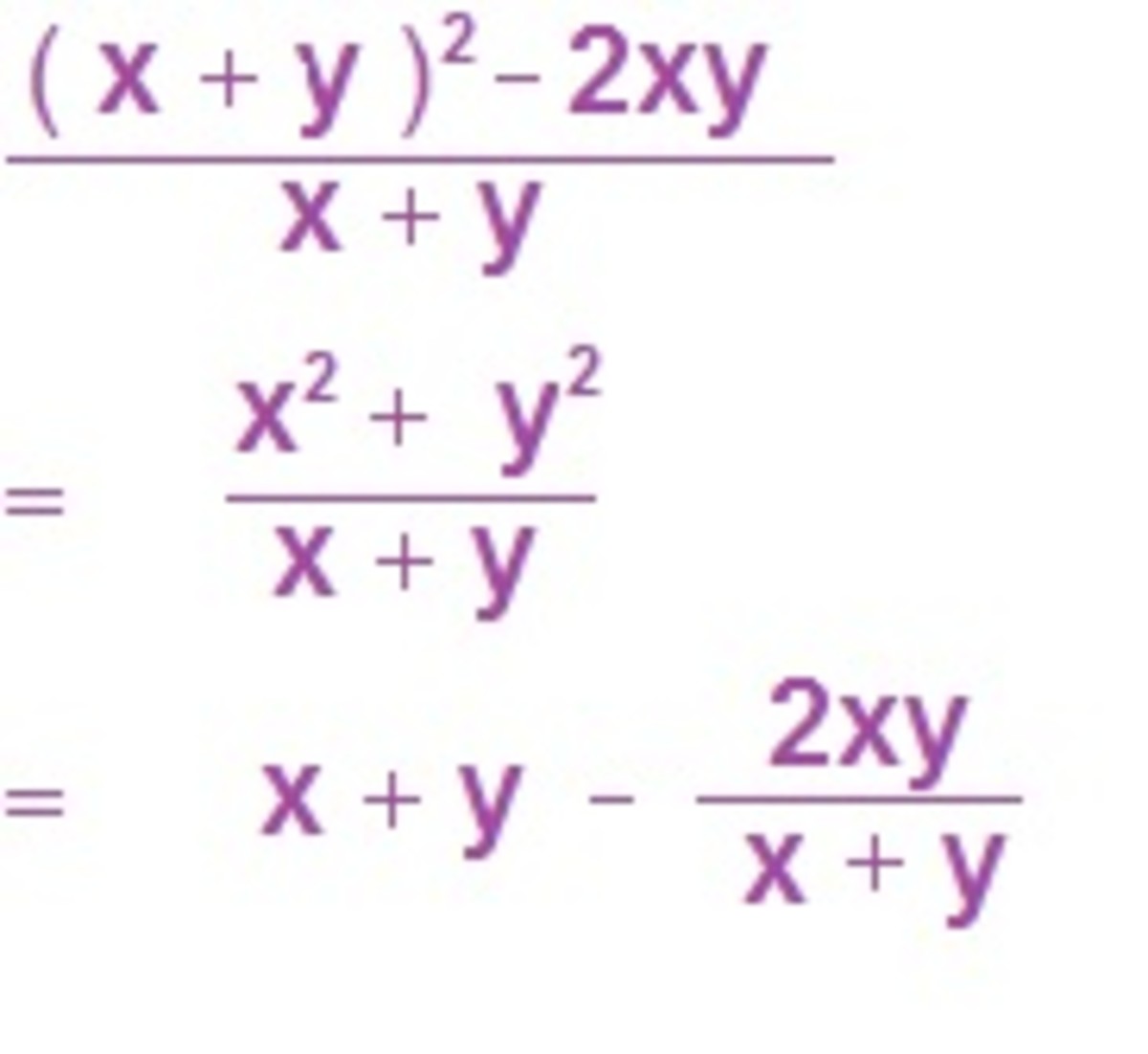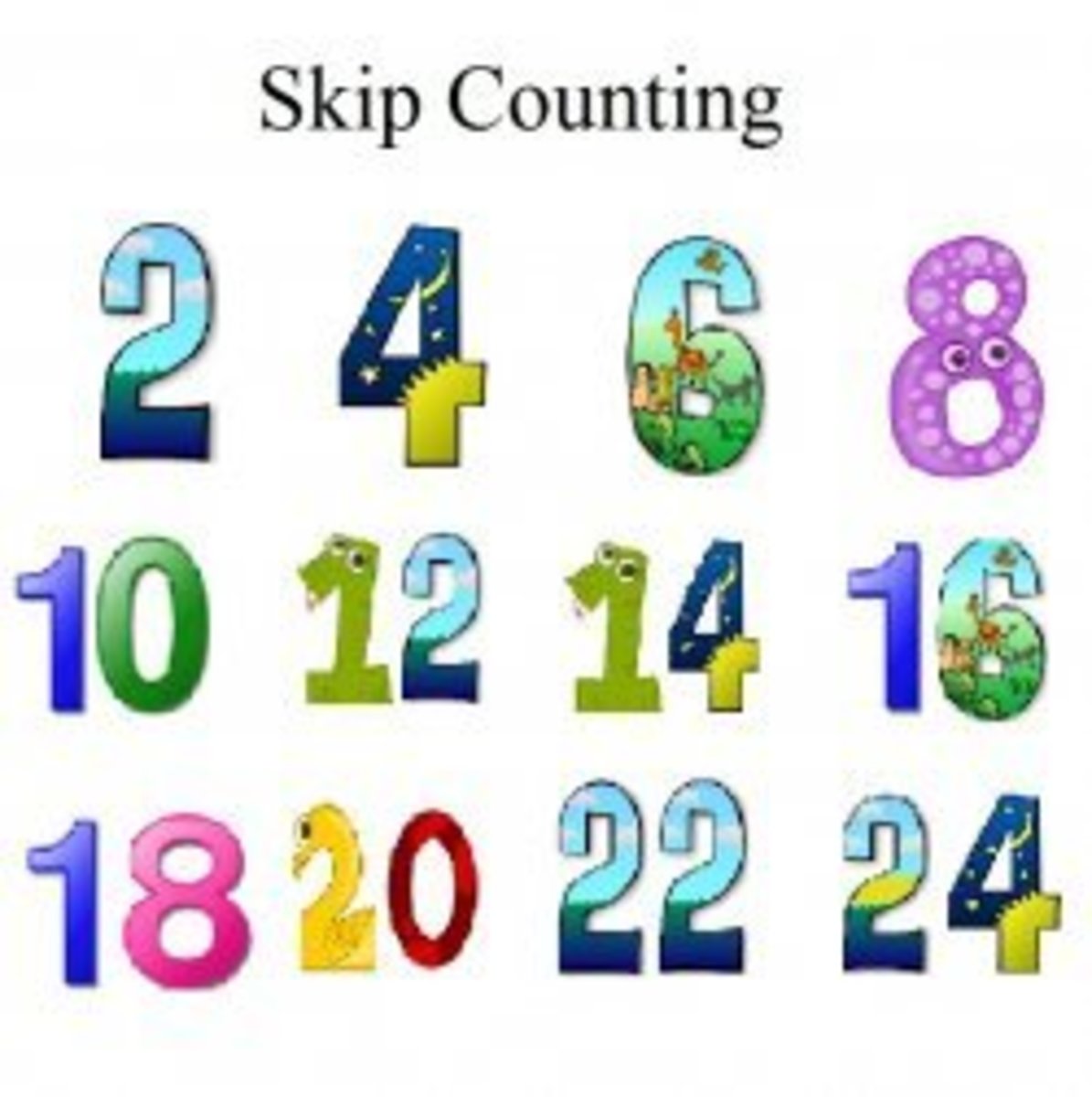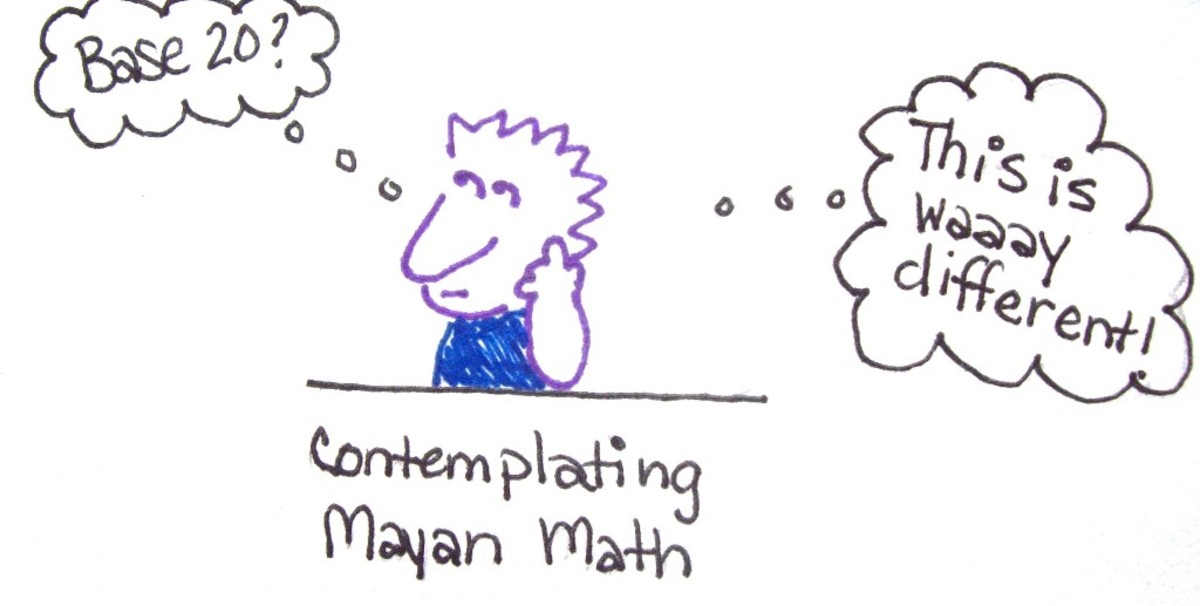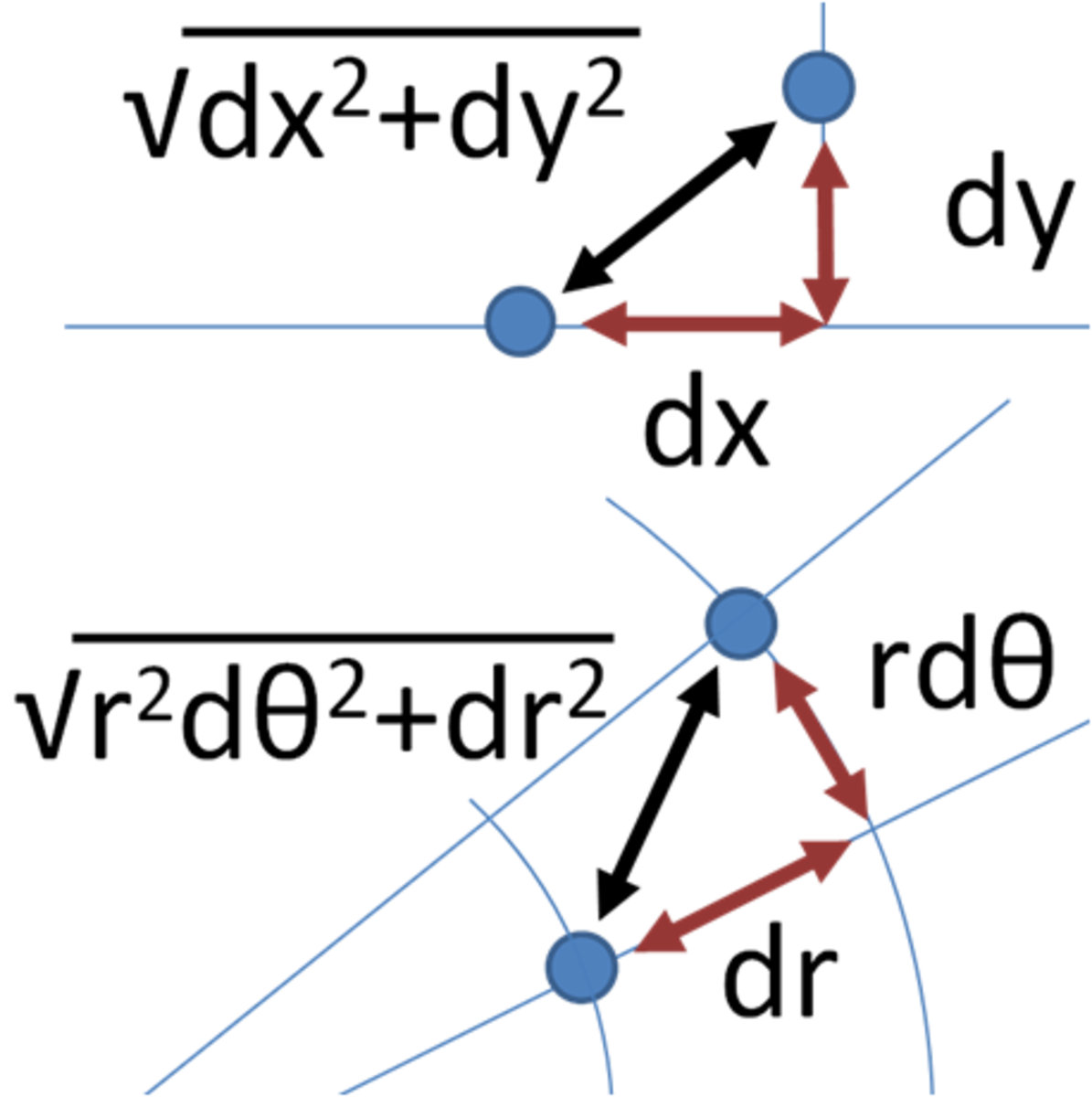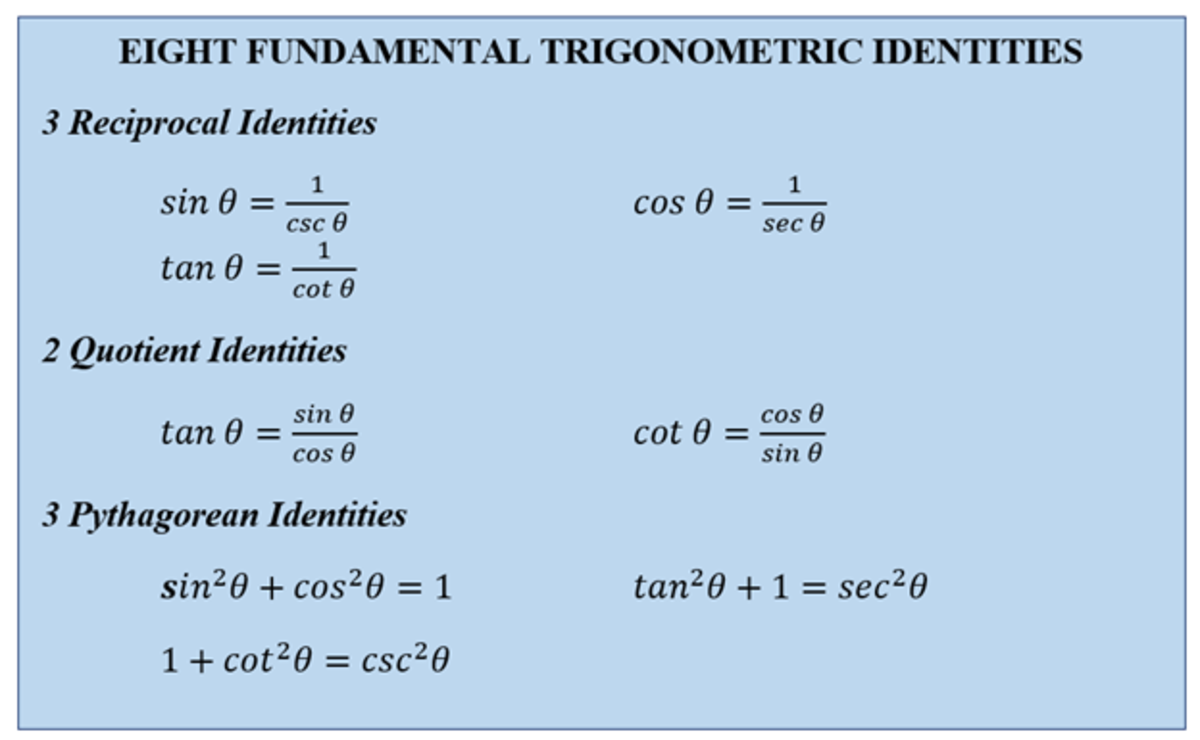Imaginary Numbers: Power of i
Complex Numbers :Power of i
We did not define nth root of a certain number a if n is even and a is negative. For instance square root of -9 was not defined . In particular we did not defineSQRT(a) if a is a negative since there is no real number whose square root is negative.Thus we cannot solve an equation such asX^2= -81 using only real numbers.We may extend the real number systemto a larger system called the complex numbers system.To do this we first define the imaginary numberii :
i^2 =- 1or i = SQRT(-1)
Therefore-i =i^3
Sincei^3=( i^2)( i )=( -1) (i ) =-i
i^4 =1
Sincei^4=( i^2) (i^2)=(-1)(-1)=1
i^5 = i
Sincei^5=( i^4)(i ) = (1) (i)=i
Sample Exercises
Number One :Show thati^27=-i
i^27 =(i^24 )(i^2)(i)
Since i^24=( i^4)^6=1^6=1 and i^2=-1
Thereforei^27=(1) (-1)(i)=-i
Number Two:Findi^105
i^105 =(i^104 )(i)
Sincei^104=(i^4)^26 = 1^26=1
Threforei^105= ( 1)(i)= i
Number Three:Find i^307
i^307 =( i^304)( i^2) (i)
Sincei^304=(i^4)^76=1^76= 1 andi^2=-1
Thereforei^307=(1) (-1) (i)=-i
Number Four : Find i^1002
i^1002 = ( i^1000) (i^2)
Since i^1000= ( i^4)^250=1^250=1andi^2= -1
Therefore i^1002=(1) (-1)=-1
SOURCE :
COLLEGE ALGEBRA BY
REES
SPARKS
REES


